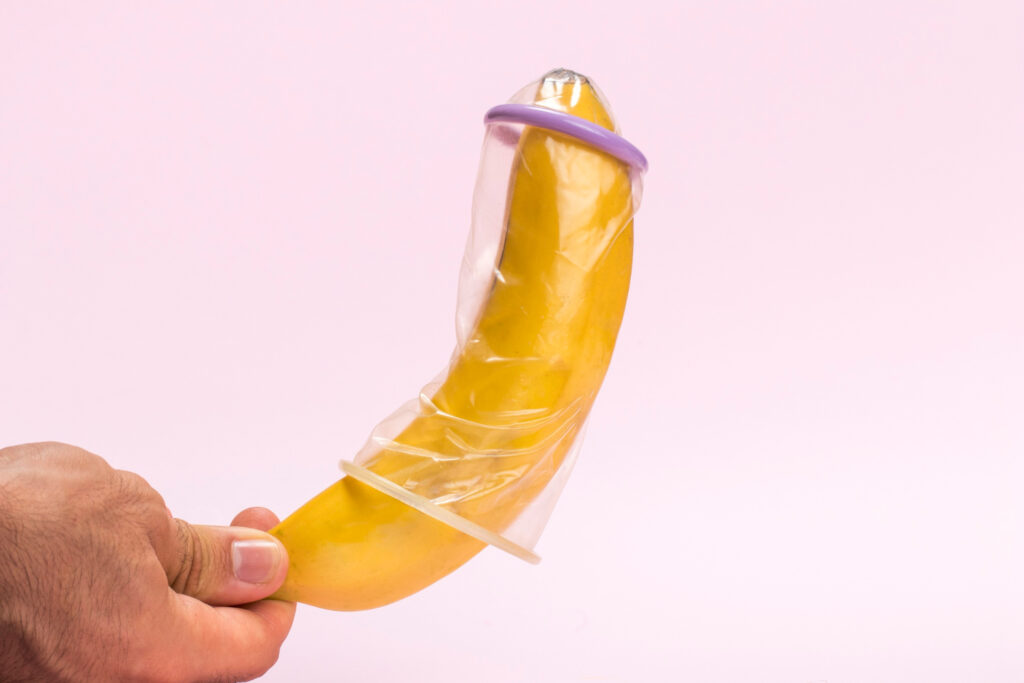Expert Insights: Understanding the Psychology of Penis Size

The Influence of Cultural and Societal Norms on Body Image Perception
Body image perception is a complex and multifaceted concept that is influenced by various factors, including cultural and societal norms. These norms play a significant role in shaping our beliefs and attitudes towards our bodies. In many cultures, there is an idealized standard of beauty that is heavily promoted by the media and reinforced through social pressures.
For instance, in Western societies, there is often an emphasis on thinness as the ideal body shape for women, while muscularity is highly regarded for men. These ideals are perpetuated through advertisements, fashion industry, and entertainment media, which often portray individuals who conform to these standards as successful, desirable, and confident. As a result, many people internalize these societal norms and develop a negative body image when they perceive themselves as falling short of the ideal.
Moreover, cultural norms can also influence body image perception through the value placed on certain physical features and characteristics. This is particularly evident in societies where specific body types or attributes are associated with cultural beauty ideals. For example, in some cultures, fair skin or specific body proportions may be highly valued, leading individuals who do not possess these traits to feel inadequate or dissatisfied with their appearance.
It is important to recognize that cultural and societal norms are not fixed or universal, and they may vary across different regions and communities. However, the pervasive nature of media and globalization has amplified the impact of these norms, making it all the more crucial to promote diverse representations of beauty and challenge narrow beauty standards. Ultimately, a more inclusive and accepting society is needed to foster positive body image and enhance overall well-being.
The Significance of Penis Size in Male Sexual Self-esteem
Male sexual self-esteem can be deeply influenced by societal and cultural norms regarding penis size. Many men internalize the belief that a larger penis equates to greater sexual prowess and desirability. This perception has been perpetuated by media portrayals and commonly held stereotypes, leading many men to question their own adequacy and feel a sense of inadequacy if they do not measure up to these unrealistic expectations.

Research has shown that while there is variation in penis size among individuals, the average erect penis size falls within a relatively narrow range. For instance, a comprehensive study published in the British Journal of Urology International found that the average length of a flaccid penis is approximately 9-10 centimeters (3.5-3.9 inches), while the average erect penis length is around 13-14 centimeters (5.1-5.5 inches) [1]. It is important to note that there is no definitive correlation between penis size and sexual satisfaction or performance [2]. Sexual pleasure is determined by various factors, including emotional connection, communication, and technique.
It is crucial to challenge the societal emphasis on penis size and promote a broader understanding of what constitutes sexual satisfaction and self-worth. Encouraging open and honest conversations about sex and body image can help dismantle the unrealistic expectations that contribute to male sexual self-esteem issues. By fostering a supportive environment, individuals can feel more comfortable expressing their concerns and seeking professional guidance if needed.
Psychological Factors that Contribute to Body Dysmorphic Disorder
Body dysmorphic disorder (BDD) is a psychological condition characterized by excessive preoccupation with perceived defects or flaws in one’s physical appearance. While the exact cause of BDD is not fully understood, researchers have identified a range of psychological factors that contribute to the development and maintenance of this disorder.

One significant psychological factor that plays a role in BDD is negative body image. Individuals with BDD often have distorted perceptions of their own appearance, seeing themselves as ugly, disfigured, or flawed, despite evidence to the contrary. This distorted perception is fueled by underlying cognitive biases, such as selective attention, where individuals focus only on the perceived flaws and ignore any positive aspects of their appearance. Additionally, individuals with BDD may engage in excessive checking and reassurance-seeking behaviors, constantly seeking validation and reassurance from others about their appearance. This perpetuates the negative body image and reinforces the belief that their perceived flaws are real and significant.
Another psychological factor that contributes to BDD is perfectionism. Individuals with BDD often have unrealistically high standards for their appearance and feel intense pressure to meet these standards. They may engage in constant self-evaluation and self-criticism, striving for an unattainable level of perfection. This perfectionistic mindset further fuels the preoccupation with their perceived flaws and leads to heightened distress and dissatisfaction with their appearance.
In conclusion, several psychological factors contribute to the development and maintenance of body dysmorphic disorder. Negative body image and perfectionism play a significant role in perpetuating the distorted perceptions and preoccupation with perceived flaws. Understanding these psychological factors is crucial for effective diagnosis and treatment of BDD, as interventions targeting these factors can help individuals overcome their distress and improve their overall well-being.
Exploring the Relationship Between Penis Size and Masculinity
Penis size has long been associated with masculinity and sexual confidence, leading to a great deal of interest and speculation on its relationship with masculine identity. However, it is important to approach this topic with caution and rely on scientific evidence rather than relying on stereotypes or societal pressures.
Numerous studies have explored the connection between penis size and masculinity, with varying findings. While some research suggests that there may be a correlation between larger penises and a greater sense of masculinity, others have found no significant association. It is crucial to note that masculinity is a complex construct that encompasses factors beyond physical attributes. Confidence, personality traits, emotional intelligence, and the way one carries oneself also contribute to an individual’s sense of masculinity.
Additionally, it is essential to consider that societal and cultural norms play a significant role in shaping perceptions of masculinity. These norms can differ across various cultures and can influence how penis size is viewed and valued. It is crucial to challenge and question these norms, as they can often perpetuate unrealistic expectations and lead to feelings of inadequacy. The promotion of body positivity and self-acceptance, regardless of penis size, is essential in fostering a healthier understanding of masculinity.
Media Influence and its Impact on Perception of Penis Size
The media plays a significant role in shaping our perception of body image, and this extends to the perception of penis size as well. It is no secret that mainstream media often promotes a certain standard of physical attractiveness, which can lead to insecurities and unrealistic expectations for individuals of all genders. When it comes to penis size, media portrayal often perpetuates the notion that bigger is always better, creating a distorted understanding of what is considered “normal” or desirable.

One of the primary ways in which media influences our perception of penis size is through the portrayal of male characters in television shows, movies, and advertisements. Often, these characters are depicted as having exceptionally large penises, which can create a sense of inadequacy and self-doubt for individuals who do not fit this idealized standard. This portrayal not only influences how individuals perceive themselves but can also shape their expectations of what their partners might desire.
Moreover, the adult film industry, which is easily accessible through various online platforms, further amplifies the unrealistic standards of penis size. The performers in these films are often chosen based on their above-average attributes, including penis size. This constant exposure to exaggerated portrayals of male genitalia can lead to feelings of inadequacy and body dissatisfaction among viewers.
It is important to recognize that penis size is a highly individualistic and diverse trait, just like any other physical attribute. There is a wide range of sizes that fall within the normal spectrum, and what matters most in the context of sexual pleasure and satisfaction is not the size, but rather the emotional connection, compatibility, and communication between partners.
In the next section, we will explore the role of pornography in shaping penis size expectations and its potential impact on individuals’ self-perception and relationships. By shedding light on this topic, we aim to help individuals navigate the media-created maze surrounding penis size and promote a more open and inclusive conversation about body image and sexual confidence.
The Role of Pornography in Shaping Penis Size Expectations
Pornography has become increasingly accessible in today’s digital age, and it undeniably plays a significant role in shaping societal expectations, including those related to penis size. While it is important to approach this topic with sensitivity and empathy, it is crucial to acknowledge the potential influence of pornography on individuals’ perception of penis size. The explicit and often unrealistic depictions of male genitalia in pornography can create unrealistic standards and contribute to feelings of insecurity or inadequacy among viewers.

It is worth noting that the actors in pornography are often selected based on specific physical attributes, including penis size, which can create a distorted perception of what is considered “normal” or desirable. Research suggests that exposure to pornography featuring performers with larger-than-average penises can lead individuals to develop unrealistic expectations about their own bodies. Consequently, this can result in body dissatisfaction and distress, potentially leading to negative self-image and even body dysmorphia. Understanding these influences and their potential impact is crucial in promoting a healthy body image and overall well-being.
Psychological Effects of Penis Size Insecurity on Relationships
Penis size insecurity can have profound psychological effects on relationships, oftentimes leading to a range of emotional and mental challenges for individuals. When one is consumed by thoughts of inadequacy and self-doubt related to their penis size, it can create significant stress and anxiety within intimate relationships.
Individuals may experience feelings of shame, embarrassment, and fear of judgment from their partners, which can in turn affect their overall self-esteem and body image. This insecurity can lead to sexual performance anxiety and a decline in sexual satisfaction for both partners. In fact, studies have shown that men with penis size insecurity are more likely to experience erectile dysfunction and difficulties in achieving sexual arousal, further exacerbating their feelings of inadequacy and impacting their relationships negatively. It is important to consider that these psychological effects can manifest differently for each individual, and may also depend on various contextual factors within the relationship itself.
Understanding the Link Between Penis Size and Self-confidence
In today’s society, there is a considerable emphasis placed on physical appearance, and for many men, this includes concerns about penis size. The link between penis size and self-confidence is a complex and multifaceted issue that has garnered much attention in recent years. It’s important to understand that self-confidence is a subjective experience, influenced by a variety of factors. While penis size may play a role in how some men perceive themselves, it’s crucial to recognize that self-confidence is not solely determined by this physical attribute.
Numerous studies have examined the association between penis size and self-confidence, offering valuable insights into this correlation. Research suggests that men with body dysmorphic disorder or body image concerns are more likely to experience feelings of inadequacy regarding their penis size. Additionally, societal and cultural factors can contribute to these insecurities, as media portrayals and societal norms often emphasize unrealistic ideals of masculinity. However, it’s essential to remember that self-confidence is a complex construct influenced by various aspects, including personality, relationships, achievements, and overall mental well-being. By addressing these broader factors, individuals can work towards developing a more robust sense of self-confidence, regardless of their penis size.
Examining the Psychological Consequences of Penis Enlargement Techniques
Penis enlargement techniques have gained popularity in recent years, with many men seeking to alter their perceived size. While these techniques promise physical changes, it is important to consider the potential psychological consequences that may arise from pursuing such methods. It is crucial to approach this topic with sensitivity, as individuals struggling with body image issues may already harbor feelings of inadequacy and self-doubt.
Research suggests that the pursuit of penis enlargement techniques can lead to a range of psychological consequences. A study published in the Journal of Sexual Medicine found that men who engaged in these techniques often experienced increased levels of anxiety, negative body image, and decreased self-esteem. These psychological effects can stem from the pressure to conform to societal expectations and the belief that penis size directly correlates with sexual prowess. It is important to note that these techniques often have limited efficacy and can even lead to physical harm. The focus should be on promoting body positivity and self-acceptance, rather than resorting to potentially harmful methods.
The Connection Between Penis Size and Performance Anxiety
Performance anxiety, in relation to penis size, is a common concern that many individuals experience. It is important to note that performance anxiety is not solely influenced by penis size, but rather a complex interplay of psychological factors. While societal expectations and cultural norms may perpetuate the idea that a larger penis equates to better sexual performance, it is crucial to understand that this correlation is not supported by empirical evidence.
Research has consistently shown that sexual satisfaction and performance are not solely dependent on penis size. In fact, a study published in the Journal of Sexual Medicine found that factors such as communication, emotional connection, and sexual techniques were more significant predictors of sexual satisfaction for both men and women. This suggests that focusing solely on penis size can lead to unnecessary anxiety and self-doubt.
It is also worth noting that performance anxiety can negatively impact sexual functioning, regardless of penis size. Anxiety can contribute to difficulties in achieving and maintaining an erection, leading to further distress and perpetuating a cycle of anxiety. It is important to address performance anxiety holistically, considering the interplay of both psychological and physiological factors, rather than solely fixating on penis size.
By understanding and acknowledging that performance anxiety is multifaceted, individuals can work towards enhancing their sexual experiences through building emotional intimacy, open communication, and exploring different sexual techniques. Seeking professional guidance from a healthcare provider or therapist who specializes in sexual health can also be beneficial in addressing performance anxiety and promoting overall well-being in intimate relationships.
Psychological Strategies for Coping with Penis Size Insecurity
In a society where societal expectations and media influence play a significant role in shaping our perceptions of physical attributes, it is not uncommon for individuals to experience insecurity about their penis size. However, it is essential to remember that penis size has no direct correlation with sexual pleasure or one’s ability to please a partner. Despite this, if you find yourself struggling with penis size insecurity, there are several psychological strategies that can help cope with these feelings.
One effective strategy is focusing on self-acceptance and body positivity. Instead of fixating on perceived shortcomings, it is crucial to embrace your body as it is and recognize that you are much more than your physical appearance. Engaging in activities that promote overall well-being, such as exercise, meditation, or pursuing hobbies, can also help redirect your focus and improve self-esteem. Additionally, seeking professional help, such as therapy or counseling, can provide a safe space to discuss your concerns and develop coping mechanisms to navigate through these insecurities. Remember, your mental well-being is just as important as your physical health, so seeking support from qualified professionals is a valid and beneficial step towards finding peace and self-acceptance.
The Importance of Open Communication in Overcoming Penis Size Concerns
Open communication is vital when it comes to addressing and overcoming penis size concerns. By openly discussing this sensitive topic with a partner, a supportive and trusting environment can be fostered, leading to improved psychological well-being and relationship satisfaction. When individuals feel comfortable discussing their concerns, they can better understand each other’s needs and work together towards finding solutions that meet both partners’ expectations.
Research has shown that couples who engage in open communication about sexual topics, including penis size concerns, are more likely to experience higher levels of sexual satisfaction and relationship intimacy (Dunkley et al., 2018). By initiating honest and respectful conversations, individuals can alleviate anxiety, reduce shame or embarrassment, and gain a better understanding of their own insecurities.
Engaging in open communication also allows partners to challenge common misconceptions and stereotypes perpetuated by societal expectations and media influences. By sharing factual information and supporting one another, couples can establish realistic expectations and promote body positivity. A study conducted by Muise et al. (2015) found that couples who openly discussed their body image concerns and supported each other experienced more positive body image and enhanced relationship satisfaction.
In conclusion, open communication plays a crucial role in addressing and overcoming penis size concerns. By creating a safe space for discussing this sensitive topic, individuals can foster trust, alleviate anxiety, and promote a healthier understanding of self-image and sexual satisfaction.
Debunking Myths and Misconceptions Surrounding Penis Size
Penis size is a topic that has been surrounded by myths and misconceptions for centuries. Many men believe that their worth or sexual ability is determined solely by the size of their penis, leading to feelings of insecurity and anxiety. However, it is important to debunk these myths and provide factual information to promote a more accurate understanding of penis size.
One common misconception is that bigger is always better when it comes to penis size. However, research has consistently shown that there is no direct correlation between penis size and sexual satisfaction for both men and their partners. A study published in the British Journal of Urology International found that penis size had very little impact on overall sexual satisfaction and that other factors such as emotional connection, communication, and technique were far more important.
Another myth that deserves debunking is the idea that penile enhancement products or techniques can significantly increase penis size. The truth is that there is limited scientific evidence to support the effectiveness of these methods. Penis pumps, weights, exercises, and pills may promise miraculous results, but their efficacy is questionable at best. A review published in the Journal of Sexual Medicine suggested that surgical procedures, such as penile enlargement, may only provide a minimal increase in length and girth and come with potential risks and complications.
It is crucial to educate individuals about these myths and misconceptions surrounding penis size to promote a healthier and more realistic perspective. By providing accurate information, we can help individuals understand that their self-worth and sexual satisfaction are not solely determined by their anatomy but are influenced by a myriad of factors that extend far beyond physical attributes.
Exploring the Role of Therapy in Addressing Penis Size Insecurity
Therapy can play a crucial role in addressing penis size insecurity, offering individuals a safe and supportive environment to explore their concerns and develop coping strategies. It provides a platform for individuals to express their feelings and fears openly, allowing them to gain a deeper understanding of the root causes of their insecurity. With the guidance of a qualified therapist, individuals can explore underlying psychological factors that contribute to their distress, such as body dysmorphic disorder or performance anxiety, and work towards finding effective ways to manage these concerns.
A key aspect of therapy is the emphasis on education and providing accurate information. Many individuals may have misconceptions or unrealistic expectations about penis size, influenced by societal pressures and media portrayals. Through therapy, individuals can gain a better understanding of normal variations in penis size and learn to challenge faulty beliefs. This can help alleviate feelings of inadequacy and promote a healthier body image and self-esteem. In addition, therapists can provide evidence-based strategies to enhance sexual satisfaction, focusing on communication, intimacy, and emotional connection rather than solely on physical attributes. Therapy can empower individuals to shift their focus from penis size to the broader aspects of sexual fulfillment, thereby promoting healthier sexual relationships.
Promoting Body Positivity and Self-acceptance Regardless of Penis Size
The promotion of body positivity and self-acceptance is vital for individuals, regardless of their penis size. Society often perpetuates unrealistic ideals and standards, leading individuals to question their self-worth and feel insecure about their own bodies. However, it is crucial to remember that penis size is not an accurate measure of masculinity, sexual prowess, or overall self-esteem.
Numerous studies have shown that there is no correlation between penis size and sexual satisfaction for both men and their partners. Instead, the quality of a sexual relationship is shaped by emotional connection, communication, and mutual respect. Relying on one’s penis size as the sole determinant of sexual satisfaction can lead to unnecessary anxiety and performance pressure. It is essential to foster a culture that encourages individuals to embrace their bodies and focus on their overall well-being, rather than fixating on physical attributes.
Is penis size the most important factor in male sexual self-esteem?
No, penis size is just one aspect of male sexual self-esteem. Confidence, communication, emotional connection, and overall sexual satisfaction are also important factors.
How does media influence affect perception of penis size?
Media influence, such as exposure to unrealistic portrayals in pornography or advertisements, can contribute to insecurities and unrealistic expectations regarding penis size.
Are penis enlargement techniques effective in increasing size?
There is limited scientific evidence to support the effectiveness of penis enlargement techniques. It’s important to approach such techniques with caution and consult a healthcare professional.
Does penis size have a direct impact on relationship satisfaction?
Relationship satisfaction is influenced by various factors, including communication, emotional connection, and overall sexual compatibility. Penis size alone does not determine relationship satisfaction.
How can individuals cope with penis size insecurities?
Coping strategies for penis size insecurities may include self-acceptance, focusing on overall sexual satisfaction, open communication with partners, and seeking support from healthcare professionals or therapists if needed.
Are there any misconceptions or myths surrounding penis size?
Yes, there are many misconceptions and myths surrounding penis size, such as the belief that larger size guarantees sexual pleasure or masculinity. These misconceptions can contribute to insecurities and unrealistic expectations.
Can therapy be helpful in addressing penis size insecurities?
Yes, therapy can be helpful in addressing penis size insecurities by providing a safe space to explore and challenge negative beliefs, improve self-esteem, and develop healthy coping strategies.
How important is open communication in overcoming penis size concerns?
Open communication is crucial in overcoming penis size concerns. Discussing insecurities, desires, and expectations with sexual partners can foster understanding, support, and a healthier sexual relationship.
Is body positivity and self-acceptance possible regardless of penis size?
Absolutely. Body positivity and self-acceptance are achievable regardless of penis size. Embracing one’s unique qualities and focusing on overall sexual satisfaction and emotional connection can contribute to a positive self-image.






